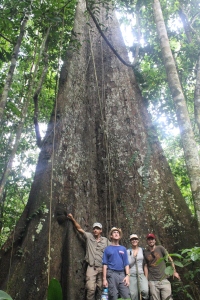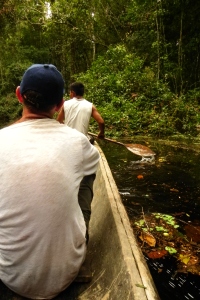The Tapiche Ohara Reserve was concept with a idea of been a alternative & sustainable source operating in preserved areas with locals communities.
The founder Murilo Reis was born and raised in the Brazilian Pantanal and was one of the pioneers into organized tours, and the first of introduce the Catch & Release fishing as a sustainable resource for preserve the aquatic fauna.
Having the greed for knowledge and the desire to travel around the world especially were nature was the main attraction; led Murilo to work as a guide, head guide and continue to assist with development activities and programs in some of the best nature lodges in South American . Today is a coowner with Gert Weisspening and Luis fernando Eduwards, General manager of Tapiche Ohara Reserve in the Requena district
In this area we have the locals communities within our operation as guides, accommodation providers, transport providers, and cooks. Promoting to them a better economy and a sustainable life.
Regards the opportunity to see wild life, maybe we see more terrestrial wild life when is dryer, cause they move from the higher lands into the flooded forest that at this time is dry, like coatis, deers , peccaries and turtles. In the wet season, one can go more in canoes and make less noise displacing and the chances of viewing more large groups of monkeys are greater Birds are always around and the season does not matter to much. Macaws, parrots toucans are common to be seen in a daily basis.
The Reserve
We are deep inside the jungle. The 1540 hectare Reserve, spanning both sides of the
Tapiche River, is located 440 km up river from Iquitos, Peru. Being deep in the jungle has the advantage of offering virgin rainforest and access to authentic native populations untouched by tourism.
At Tapiche Ohara’s Reserve, we can cover several types of habitats within a relatively small space. We develop our programs in such a way that you see us much diversity of landscape as possible.
We don’t use the expedition type of trip for several reasons:
- The logistics of camping are not conducive to maximizing the jungle experience. The jungle is best observed in early morning and late afternoon.
- When on expedition, one has to stop in the early afternoon to set up camp and prepare food. Similarly,morning is generally occupied by making breakfast and breaking camp. All this takesvaluable time away from observing and learning about the wildlife.
- · We employ local guides who are trained with professional guide skills such as conducting field groups, identification of medicinal plants, bird watching, catch & release fishing, and responsible tourism practices.
- We have walking trails and educational programs made to show you different areas.
- Furthermore, we make every effort to minimize the impact of cutting new territory every expedition, which scares wildlife and damages the landscape.
At Tapiche Reserve, we have a commitment to high quality service and provide a responsible and intelligent way to bring low impact tourism to the Amazon.









Resposta